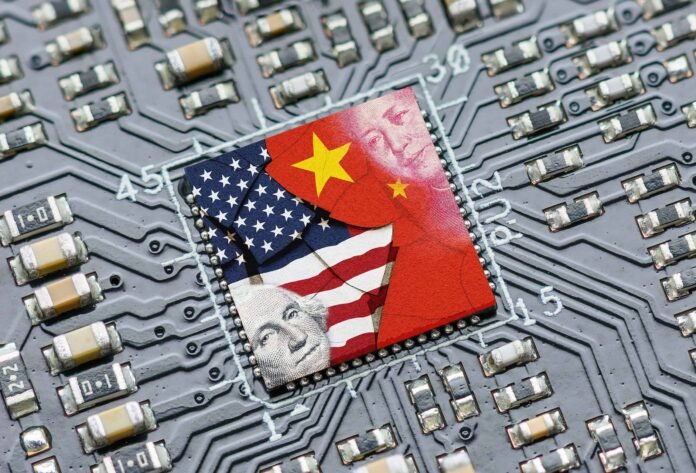Encouraged by the success of its DeepSeek AI platform, China is doubling down on artificial intelligence development, viewing it as a key tool to counter U.S. trade restrictions and assert dominance in both business and military sectors.
China’s government has been actively fostering AI advancements through close collaboration with private companies and universities. The strategic push comes as AI models such as DeepSeek gain global recognition, with some proving nearly as effective as ChatGPT despite operating on older-generation Nvidia chips—due to U.S. restrictions on advanced semiconductor exports to China.
China’s Rapid AI Advancements
In recent weeks, China has unveiled several new AI models, including Manus, which industry experts claim can rival the latest versions of ChatGPT. Analysts have noted that China, which once lagged one to two years behind the U.S. in AI, is now narrowing the gap to just months.
“China and the U.S. have pulled way out front in the AI race,” said Jeffrey Towson, a Beijing-based AI expert, adding that China’s Kling AI and Minimax are emerging as global leaders in video generation. Meanwhile, Alibaba’s Qwen is positioning itself as a dominant force in large language models (LLMs).
The Chinese government has also launched a National Computing Power Grid, a centralized infrastructure allowing AI companies to access computing power without requiring heavy private investments—contrasting with the decentralized, company-led approach seen in the U.S.
Competitive Pressure in AI Innovation
Despite China’s progress, leading figures in its tech industry acknowledge the challenges ahead. Baidu CEO Robin Li recently admitted feeling “huge pressure and a sense of crisis” after OpenAI unveiled an updated version of ChatGPT’s GPT-4 model. Baidu’s own AI chatbot, Ernie Bot, has struggled to keep pace with its American counterparts.
However, AI-powered robotics is emerging as an area where China could take the lead. “AI plus robotics is likely where China will take a commanding lead over the U.S., just like in electric vehicles,” Towson noted, pointing to companies like Unitree, which are already making strides in robotic development across various industries.
Government Control and AI Censorship Risks
President Xi Jinping recently called on China’s private sector, including tech firms, to “show their talent” in tackling economic and geopolitical challenges. While AI in China benefits from centralized industrial policies, some experts warn that state censorship may limit the diversity of training data for large language models.
Nevertheless, China is focusing on specialized AI applications, particularly in healthcare, where models are being developed to improve diagnostic accuracy in detecting rib fractures, cancer, and other conditions.
China’s Push for Semiconductor Independence
As the AI race heats up, China remains determined to build an independent semiconductor supply chain to bypass U.S. sanctions. Companies such as Huawei have already demonstrated the ability to design and manufacture advanced chips, a critical step in reducing reliance on foreign technology.
“It is advancing faster than anyone thought possible,” Towson said. However, he acknowledged that the pace of innovation remains uncertain, given the constant evolution of frontier technology.
Despite U.S. efforts to curb China’s AI ambitions, analysts believe the country’s focus on software optimization and alternative computing solutions will allow it to maintain strong momentum in AI development. However, geopolitical tensions could further escalate, with potential U.S. responses to China’s restrictions on AI models like ChatGPT remaining a key uncertainty.
Stay tuned to DC Brief for further updates on this story and other technology developments.


